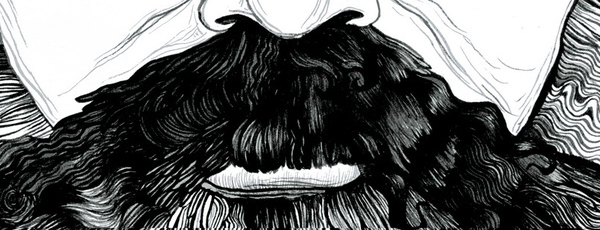
Tracks
Trust Punks: "Karl Marx Real Doll"
Single (2013)
By Adam Downer | 29 July 2013
It’s a testament to Public Strain (2010) that, even three years later, all one has to do to pique my interest is declare something to “sort of sound like Women.” With those words alone, I’m clicking furiously towards a potential resolution to years of heartbreak (examples of this phenomenon include my relationships to Long Long Long and Chad VanGaalen’s Diaper Island [2011]). I shouldn’t, but I still feel vaguely shortchanged by Women’s break-up, and I’ve been dealing with the uninhabitable void left by their second, final (sigh) album by looking elsewhere. Anywhere. I know the search’s object is ultimately something that will never exist again, but I chase on to numb the pain. Sounds like Women? Sure, why not.
So it goes with Trust Punks and their second single “Karl Marx Real Doll.” Now critically, of course, it’s not really fair to hold a band accountable for its relation to admitted influences, but for about thirty seconds of this song the Women comparisons are dead on. The song’s slightly up-tempo 4/4 pulse and jangly guitars immediately call to mind a different write of “Locust Valley,” and the vocals have that trademarked Flegel-sneer to them. The crucial difference that Trust Punks introduce their capacity to be, in a word, fun. Whereas Women always had a maudlin air about them that made them a band one never played casually, “Karl Marx Real Doll” straight jams—and three separate times, too. The tone’s set by a post-punk drone, shifts into a more raucous bridge that recalls Manic Street Preachers, and then wraps up with a two-minute taunt to fauxhemian hipsters over a “China Steps” riff. There’s nothing remarkable happening here; each section’s got its own hypnotic groove which the band uses to no greater end than to aggressively stick its tongue out.
There’s an interesting moment in an interview with Under the Radar when Trust Punks get pressed on the subject matter of “Karl Marx Real Doll” and the songwriter replies that the song “is specifically about…politics?” The noncommittal response is revealing. If anything, it validates the feeling that the lyrics are barely-sequitur earworms—good ones, but confining the song’s appeal to the tune itself. It’s a candy track, basically, the sort of song one plays seven times in a row and never again. But while this song might be slight enough to burn out quickly, it certainly piques interest in what Trust Punks will do next. They have the ear to execute the sound; one hopes they find the substance.





